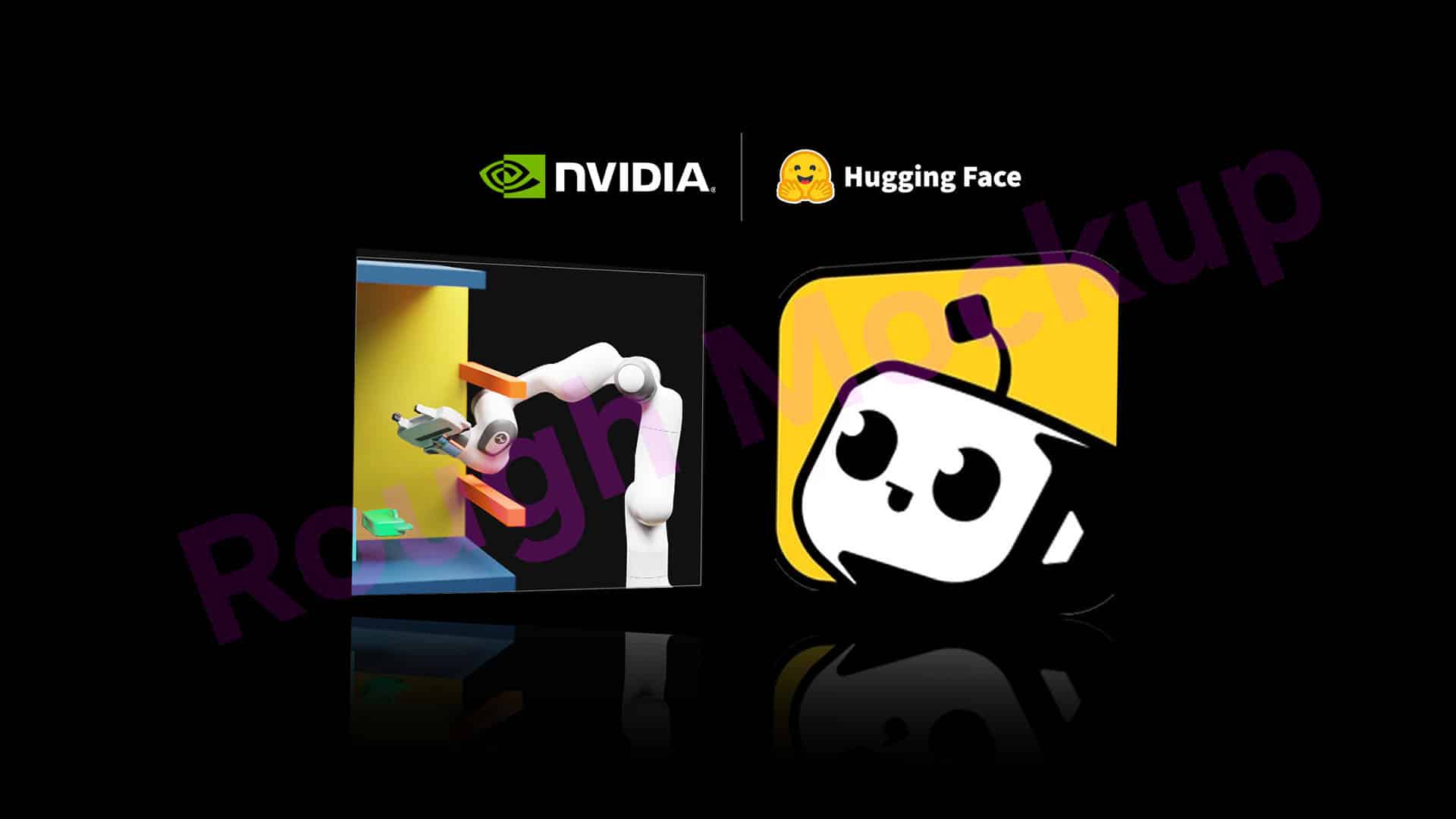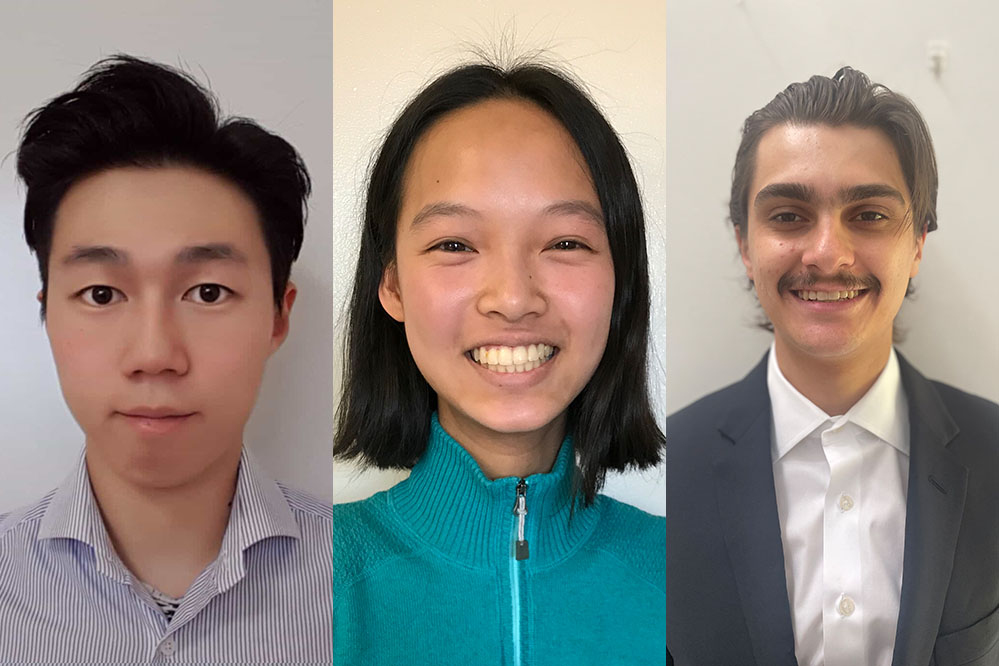Hugging Face and NVIDIA to Accelerate Open-Source AI Robotics Research and Development
At the Conference for Robot Learning (CoRL) in Munich, Germany, Hugging Face and NVIDIA announced a collaboration to accelerate robotics research and development by bringing together their open-source robotics communities. Hugging Face’s LeRobot open AI platform combined with NVIDIA AI, Omniverse and Isaac robotics technology will enable researchers and developers to drive advances across a Read Article

At the Conference for Robot Learning (CoRL) in Munich, Germany, Hugging Face and NVIDIA announced a collaboration to accelerate robotics research and development by bringing together their open-source robotics communities.
Hugging Face’s LeRobot open AI platform combined with NVIDIA AI, Omniverse and Isaac robotics technology will enable researchers and developers to drive advances across a wide range of industries, including manufacturing, healthcare and logistics.
Open-Source Robotics for the Era of Physical AI
The era of physical AI — robots understanding physical properties of environments — is here, and it’s rapidly transforming the world’s industries.
To drive and sustain this rapid innovation, robotics researchers and developers need access to open-source, extensible frameworks that span the development process of robot training, simulation and inference. With models, datasets and workflows released under shared frameworks, the latest advances are readily available for use without the need to recreate code.
Hugging Face’s leading open AI platform serves more than 5 million machine learning researchers and developers, offering tools and resources to streamline AI development. Hugging Face users can access and fine-tune the latest pretrained models and build AI pipelines on common APIs with over 1.5 million models, datasets and applications freely accessible on the Hugging Face Hub.
LeRobot, developed by Hugging Face, extends the successful paradigms from its Transformers and Diffusers libraries into the robotics domain. LeRobot offers a comprehensive suite of tools for sharing data collection, model training and simulation environments along with designs for low-cost manipulator kits.
NVIDIA’s AI technology, simulation and open-source robot learning modular framework such as NVIDIA Isaac Lab can accelerate the LeRobot’s data collection, training and verification workflow. Researchers and developers can share their models and datasets built with LeRobot and Isaac Lab, creating a data flywheel for the robotics community.
Scaling Robot Development With Simulation
Developing physical AI is challenging. Unlike language models that use extensive internet text data, physics-based robotics relies on physical interaction data along with vision sensors, which is harder to gather at scale. Collecting real-world robot data for dexterous manipulation across a large number of tasks and environments is time-consuming and labor-intensive.
Making this easier, Isaac Lab, built on NVIDIA Isaac Sim, enables robot training by demonstration or trial-and-error in simulation using high-fidelity rendering and physics simulation to create realistic synthetic environments and data. By combining GPU-accelerated physics simulations and parallel environment execution, Isaac Lab provides the ability to generate vast amounts of training data — equivalent to thousands of real-world experiences — from a single demonstration.
Generated motion data is then used to train a policy with imitation learning. After successful training and validation in simulation, the policies are deployed on a real robot, where they are further tested and tuned to achieve optimal performance.
This iterative process leverages real-world data’s accuracy and the scalability of simulated synthetic data, ensuring robust and reliable robotic systems.
By sharing these datasets, policies and models on Hugging Face, a robot data flywheel is created that enables developers and researchers to build upon each other’s work, accelerating progress in the field.
“The robotics community thrives when we build together,” said Animesh Garg, assistant professor at Georgia Tech. “By embracing open-source frameworks such as Hugging Face’s LeRobot and NVIDIA Isaac Lab, we accelerate the pace of research and innovation in AI-powered robotics.”
Fostering Collaboration and Community Engagement
The planned collaborative workflow involves collecting data through teleoperation and simulation in Isaac Lab, storing it in the standard LeRobotDataset format. Data generated using GR00T-Mimic, will then be used to train a robot policy with imitation learning, which is subsequently evaluated in simulation. Finally, the validated policy is deployed on real-world robots with NVIDIA Jetson for real-time inference.
The initial steps in this collaboration have already been taken, having shown a physical picking setup with LeRobot software running on NVIDIA Jetson Orin Nano, providing a powerful, compact compute platform for deployment.
“Combining Hugging Face open-source community with NVIDIA’s hardware and Isaac Lab simulation has the potential to accelerate innovation in AI for robotics,” said Remi Cadene, principal research scientist at LeRobot.
This work builds on NVIDIA’s community contributions in generative AI at the edge, supporting the latest open models and libraries, such as Hugging Face Transformers, optimizing inference for large language models (LLMs), small language models (SLMs) and multimodal vision-language models (VLMs), along with VLM’s action-based variants of vision language action models (VLAs), diffusion policies and speech models — all with strong, community-driven support.
Together, Hugging Face and NVIDIA aim to accelerate the work of the global ecosystem of robotics researchers and developers transforming industries ranging from transportation to manufacturing and logistics.
Learn about NVIDIA’s robotics research papers at CoRL, including VLM integration for better environmental understanding, temporal navigation and long-horizon planning. Check out workshops at CoRL with NVIDIA researchers.





































